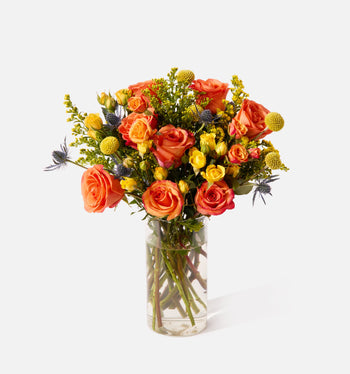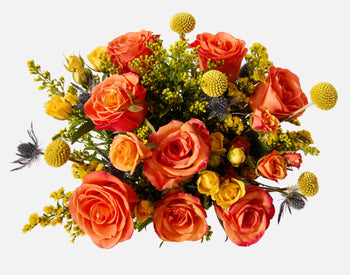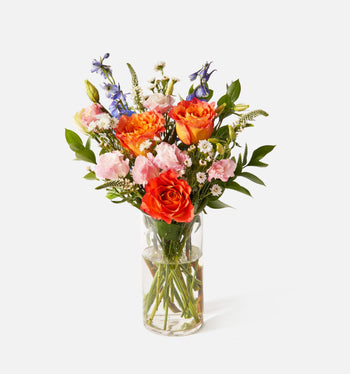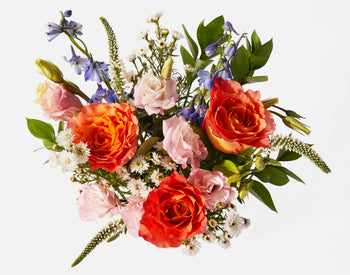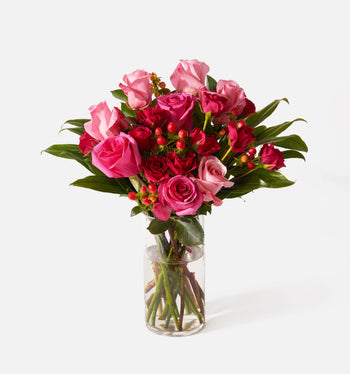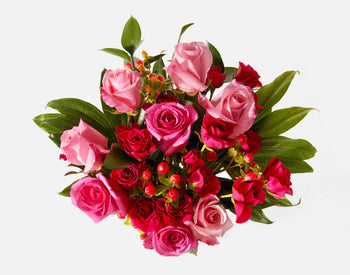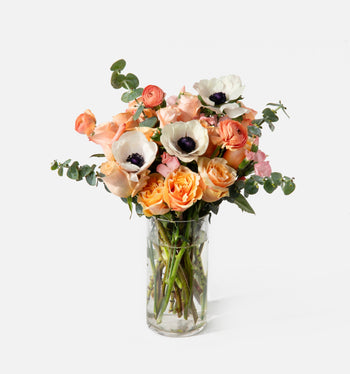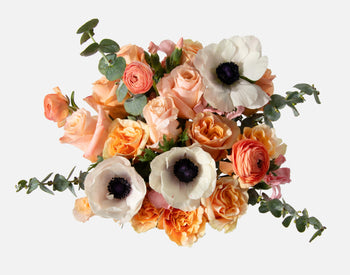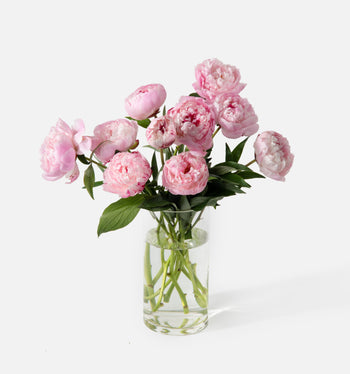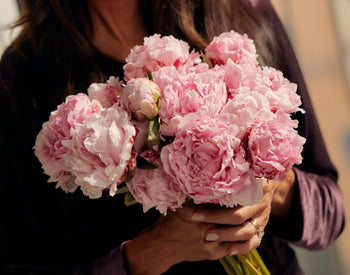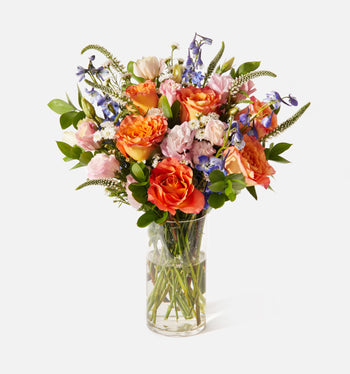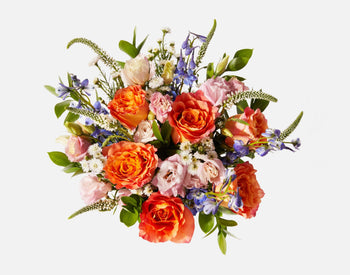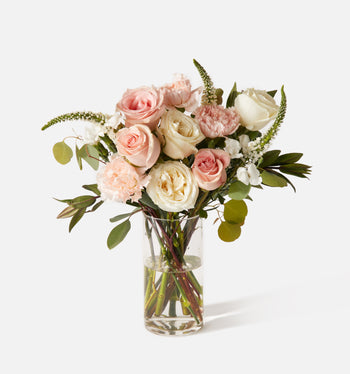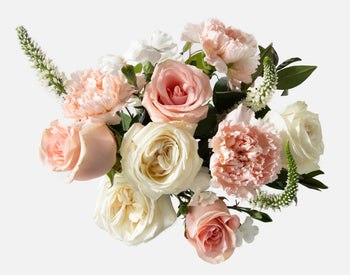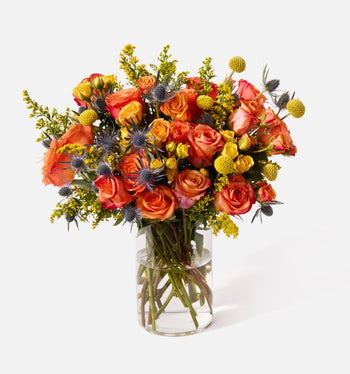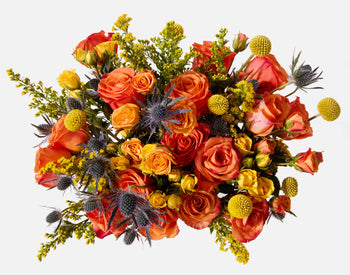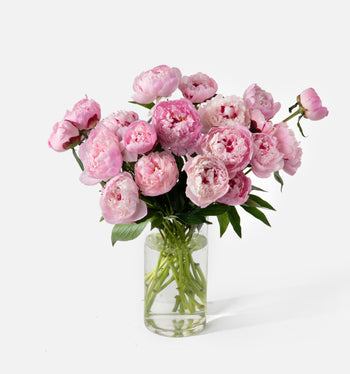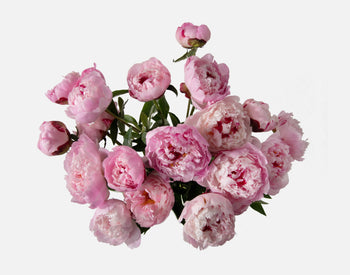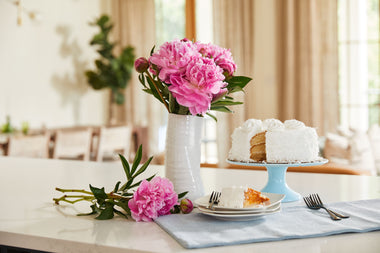Soon after the celebrations for the new year taper off, you begin to see red and pink everywhere, along with those ubiquitous heart shapes. There’s the candy, wrapped in red and pink for Valentine’s Day, and recipes for cocktails, cupcakes, and even fashion guides on how to incorporate these colors in your celebrations. And, of course, there is a bewildering variety of flowers to choose from for your Valentine.
If you’ve ever wondered why pink and red are Valentine's colors or have a special significance for Valentine’s Day, carry on reading. You’ll find, as we did, that the answer lies in history, mythology, the language of flowers, and the meaning of colors. Not only is this information fascinating, but it will also help you pick the ideal bouquets for the special people in your life.
History of Pink and Red for Valentine’s Day
Greek mythology is always a good place to start the search for answers to long-held beliefs and customs, and Valentine’s Day is no exception. In Greek myth, the color red is associated with the blood of Adonis, the god of beauty. Loved by Aphrodite, the goddess of beauty, he was slain by a jealous god. Red roses are also believed to be the flower of Aphrodite, so they came to stand for love and beauty.
In China and India, red symbolizes fertility and happiness, which is why it is the color most often worn by brides on their wedding day. The Roman feast of Lupercalia, a fertility festival that evolved into Valentine’s Day, incorporated rituals in which the shedding of blood was believed to increase fertility, establishing the link between red and fertility.
The mythical life of Saint Valentine makes another such connection from late Roman times. In one version, he defied Emperor Claudius II, who had prohibited marriages for men of military age to make them better soldiers. Saint Valentine continued wedding ceremonies in secret and was beheaded as punishment. He was later canonized by the church. And since the High Middle Ages adopted the ideal of courtly love, the day dedicated to Saint Valentine has been celebrated as a day for lovers.
Red also stands for power, energy, and action. In medieval and early modern Europe and Japan, textiles experts tell us that red dye was expensive and came to symbolize wealth and even royalty. From there, it was just a short step to making it a symbol of true love and Valentine's Day colors.
So we have a plethora of stories about the link between red and Valentine’s Day, but what about pink? Pink is often seen as a softer and more youthful version of red and stands for young love, femininity, innocence, and purity. In addition, many of the favorite flowers for Valentine’s Day, such as roses, carnations, and tulips, come in both shades, which makes the connection even stronger.
Typically, red stands for deep, undying romantic love, while pink can symbolize love for friends, children, family, and pets. So while you can get red roses for your one true love, pink roses will be a better choice for your best friend.
Throughout history, different cultures have used the language of flowers to speak their feelings. The iteration of the language of flowers we use today brings together flowers and colors to speak for you when words are not enough.
So while all roses symbolize love, the color of the flowers changes the meaning. Red roses stand for romantic true love and respect. Pink roses symbolize grace, joy, love for children and friends, and thankfulness.
Roses aren’t the only flowers that stand for love, though: anemones and baby’s breath also carry the meaning of everlasting love. To round out a bouquet of pink and red for Valentine’s Day, you could add carnations for fascination and mother’s love, peonies for happiness, and lilies for purity.
We may not be aware of it, but we react to colors unconsciously and in ways shaped by our upbringing. Colors have deep cultural meanings and significance. Historically, red has been a symbol of fertility, passion, and romance. However, it also stands for warning and danger, a useful reminder that love, like all things in life, is rarely all good or all bad.
Pink evokes positive feelings such as compassion, love, innocence, childhood, playfulness, optimism, and good cheer. Some studies even show that it can help to reduce or eliminate violent thoughts and feelings. On the other hand, depending on the shade of pink, it can be considered showy and self-centered.
Once you know the meaning of the colors and what different flowers symbolize, it’s easy to pick out the best Valentine’s Day flowers for your true love and for friends, kids, and family. Red roses symbolize true romantic love, and pink roses are a good choice for friends and younger family members.
A classic red rose bouquet is The Valentine, with fresh garden and classic roses and eucalyptus, for a lasting message of love and fragrance. The Flirt is a pink bouquet of creamy roses, ideal for a new love or a long-time partner.
When choosing red and pink flowers for Valentine’s Day, mixed bouquets add to the beauty and meaning of the holiday. The rich reds in The American Rose with roses, ranunculus, and anemones in a bronze vase speak of love and passion.
For a pink bouquet, the logical choice is The Spoil Her — with pink roses, blush spray roses, and greenery, all set in a iridescent glass vase — that will leave your Valentine with no doubt about your feelings. This is a great choice for a romantic relationship you want to take further or a new acquaintance, where red roses do not feel quite right.
As we all know, the course of true love never runs smooth, and if you’re in one of the low patches, The Love Potion, with red roses, spray roses, ranunculus, and greenery, will certainly improve your standing with your loved one. It might even win them over completely and forever, such is the power of flowers.
There are times when just words aren’t enough. Valentine's Day colors, also known as red and pink, are the eloquent messengers for Valentine’s Day, so why not let them do the talking to tell your special people how much they mean to you?
FAQs
Why are red and pink associated with Valentine's Day?
Red and pink symbolize love, passion, and affection, rooted in history, mythology, and the language of flowers. Red represents deep, romantic love, while pink signifies softer, youthful love and affection for friends, family, and children. These colors have deep cultural meanings tied to fertility, power, and joy, making them the perfect choices for Valentine's Day celebrations.
What do red flowers symbolize for Valentine's Day?
Red flowers, especially red roses, symbolize true romantic love, respect, and passion. The color red has historical ties to fertility, power, and even royalty, making it an enduring symbol of deep, undying love.
What do pink flowers symbolize for Valentine's Day?
Pink flowers, like pink roses, represent grace, joy, and love for friends, family, and children. They symbolize youthful, innocent love, and are ideal for expressing affection to those you care about in a non-romantic sense.




